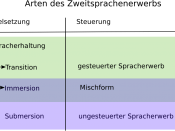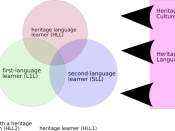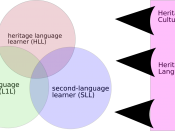According to Brian Tomlinson (2005) in ?Testing to learn: a personal view of language testing?, the whole process of language testing is for the sake of language learning. Tests, according to Tomlinson, ought to be ?learning validity?. Focusing on these points and trying to enlarge the use of tests, author listed the benefits which can get from tests. Moreover, he stated why those benefits are instructive, and how both learners and educators benefit from the tests.
A test is the most common instrument that it is used in most forms of language learning assessment. Tomlinson is absolutely right that language testing provides many opportunities for learning. Providing an opportunity for learning, however, is only one of the reasons to use testing. Another important purpose is to measure a learner?s language competence. I believe that the second purpose is the main purpose of many language tests such as TOEFL, ELS, and CANTest.
For language learners, those tests are still opportunities to learn, and studying for them can increase their language ability. However, because those tests are good to measure learner?s language competence, most organizations choose to use the results from those tests. Thus, those language tests are so powerful in the world. Learners must succeed in those tests, and this widespread reliance on these tests results can mislead the language learner. What language learners learn is the competence to do the test, but not the language it self. Although this is a universal dilemma of language competence versus language learning, but currently more and more people are having to learn other languages and testing is more commonly used to measure competence. To identify the particular benefits of language testing, farther studies are required.





